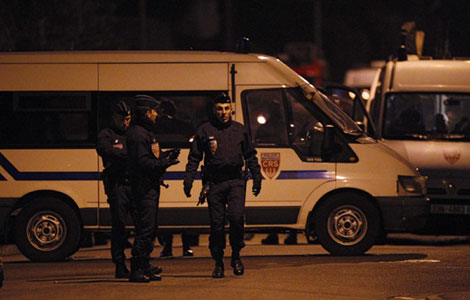 |
|
|
|
|||||||||||
BEIJING - A Chinese legislator has proposed easing the country's legal restrictions on blood donors' age, as the country's hospitals come under pressure from a blood shortage.
The standard age limits for blood donation suggested by the World Health Organization are 18 to 65, whereas Chinese law stipulates that citizens between the age of 18 and 55 are encouraged to donate blood, Sun Jing, a deputy of the National People's Congress, the top legislature, was quoted as saying in a report in Thursday's Legal Daily, the newspaper under the administration of the Ministry of Justice.
The Ministry of Health announced last month that a total of 12.32 million Chinese donated 4,164 tonnes of blood in 2011, a year-on-year increase of 3.71 percent and 5.18 percent, respectively.
However, China still faces a grave challenge in maintaining sufficient blood supplies, the ministry admitted.
Currently, only 87 of every 10,000 people on the Chinese mainland donate blood, far less than the average of 454 for every 10,000 people in developed countries and the WHO-recommended figure of 100 for every 10,000.
The current law on blood donation was promulgated in 1997 and now falls short of society's increasing demands, said Sun Taili, a member of the National Committee of the Chinese People's Political Consultative Conference (CPPCC), the top political advisory body.
Sun Taili furthermore suggested the minimum time between one individual making donations be relaxed from six months, as specified in present regulations, to three months. To increase the chances of more blood being donated, the legal volume limit for each donation should also be changed from 300 to 400 ml, the CPPCC official said.
According to the Health Ministry's estimate, the country will need 120,000 new donations per day to satisfy blood demand by 2015.
However, Liu Jiang, director of the Beijing Red Cross Blood Center, believes law amendment is not the most imperative measure to tackle the blood reserve pressures, according to the newspaper report.
The key resolution should be stricter implementation of an important existing law, in Liu's view.
This provides that voluntary blood donors enjoy preferential treatment when they need blood themselves -- they may be prioritized on waiting lists and exempted from fees.
These provisions, however, are not smoothly implemented, an oversight which potentially deters would-be donors, Liu said.
Wu Ying, iPad, Jeremy Lin, Valentine's Day, Real Name, Whitney Houston, Syria,Iranian issue, Sanyan tourism, Giving birth in Hong Kong, Cadmium spill, housing policy

|

|

|

|

|

|